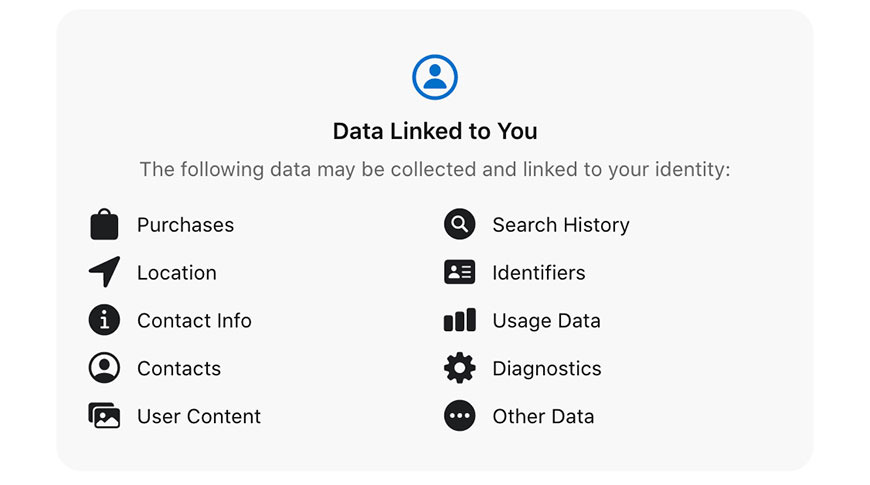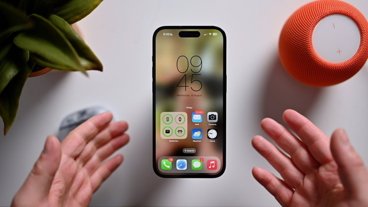After going months without an update, Google's Gmail app for iOS was refreshed on Monday with support for widgets. More importantly, the revision delivered long-awaited information regarding the app's collection of user data.
The latest version of Gmail integrates support for widgets in iOS 14, allowing users to quickly access recent mail directly from their home screen.
It has been nearly three months since Google last updated its email app, arguably one of its most important titles on iOS. The delay was thought to be in response to a recently adopted App Store feature that requires developers to provide insight into how their apps leverage user data.
Apple's app privacy labels that rolled out in December call on app makers to divulge what data is being collected by either itself or a third party, and how that information might be used. Similar to past App Store policies, apps are allowed to remain on the storefront without publishing the privacy labels, though the new rules go into effect when updates are submitted.
According to Google's release, Gmail collects and potentially links users to general information like search history, location, contact information, purchases, usage data and other metrics. The disclosure is rather staid in comparison to labels provided by other big tech names like Facebook.
Google was said to be skirting the rules by refusing to update its apps. The search giant refuted those claims in January, saying it planned to release updates with the requisite "nutrition" labels in a couple weeks. That timeline was apparently too optimistic, as major titles sat idle for months.
Earlier in February, Gmail was left sitting so long that Google's own servers pushed out a message warning users that the app did not include the company's most up-to-date safeguards. "You should update this app. The version you're using doesn't include the latest security features to keep you protected. Only continue if you understand this," the pop-up read. Google quickly removed the alert in a server-side change.
 Mikey Campbell
Mikey Campbell








 Wesley Hilliard
Wesley Hilliard
 Marko Zivkovic
Marko Zivkovic

 Malcolm Owen
Malcolm Owen

 Amber Neely
Amber Neely


-xl-m.jpg)








16 Comments
I’m not trying to be snarky here, this is a legitimate question on my part. Can anyone explain why GMail has so many “may be collected” points compared to Apple Mail? Why would purchase info be collected, for instance?

For reference, here’s what Apple Mail says:
Data Linked to You:Anything we can getMuch simpler this way.BTW, Safari's Privacy Report shows me that AppleInsider has 40 active trackers. What's up with that?